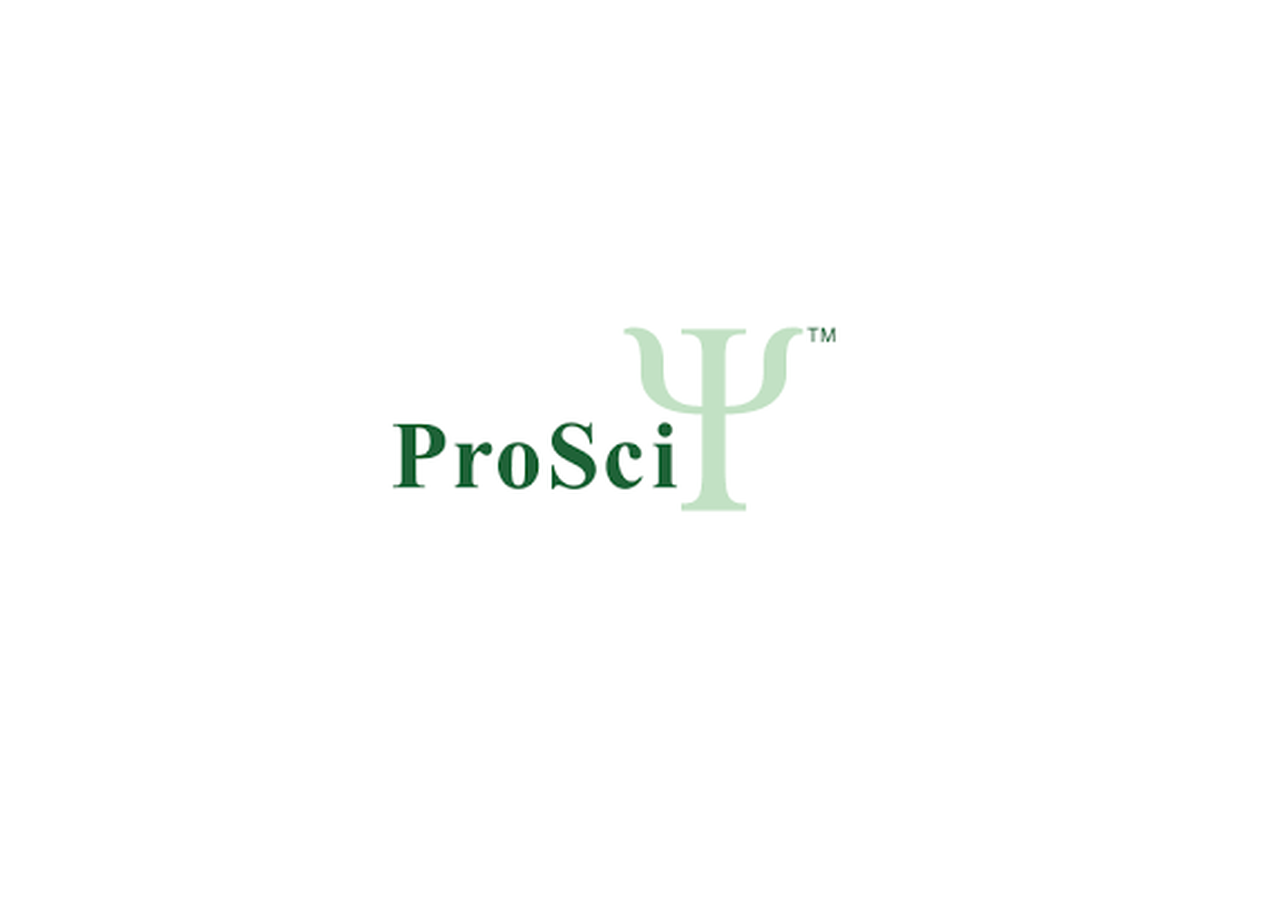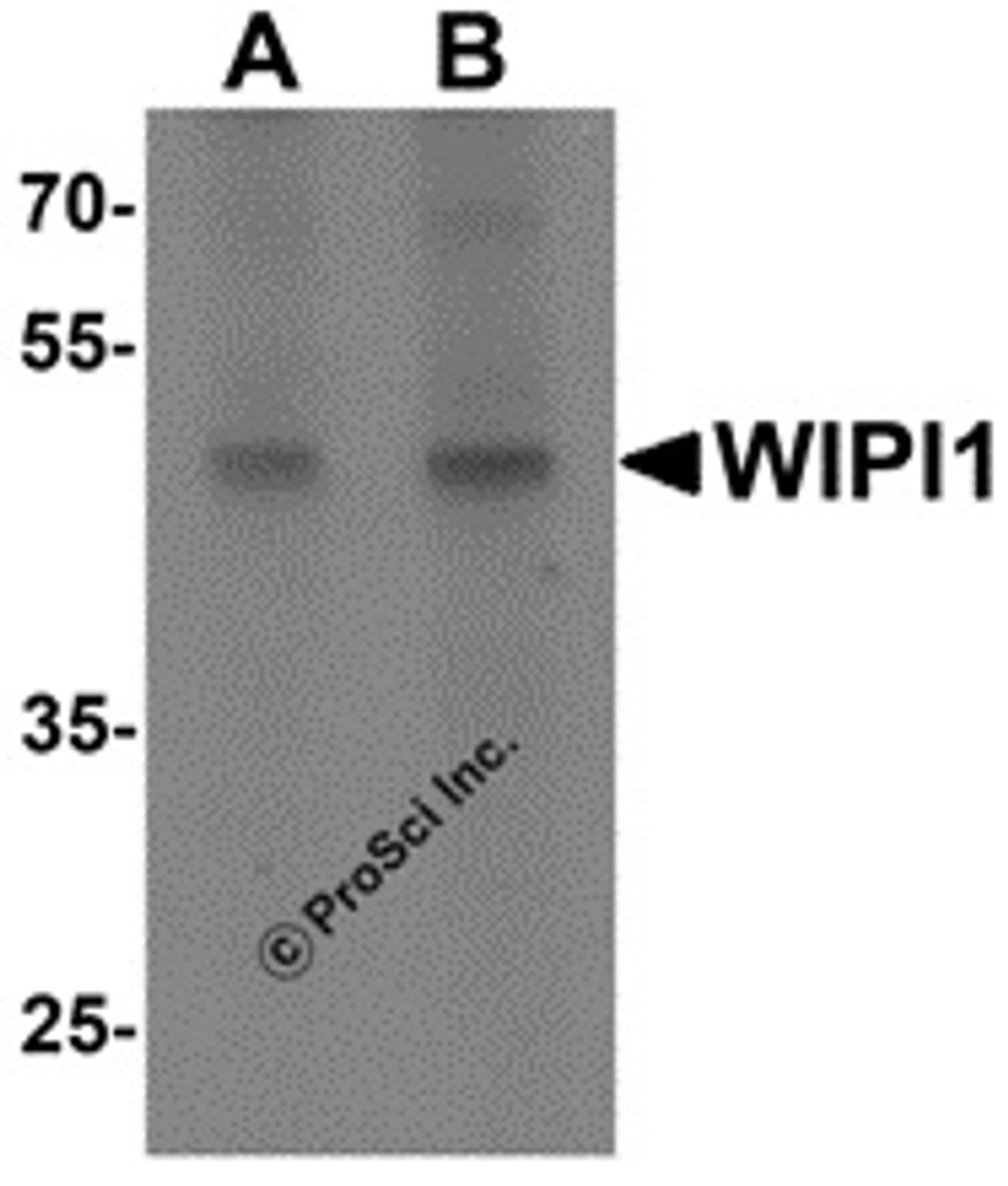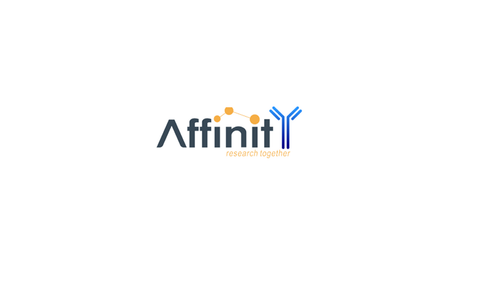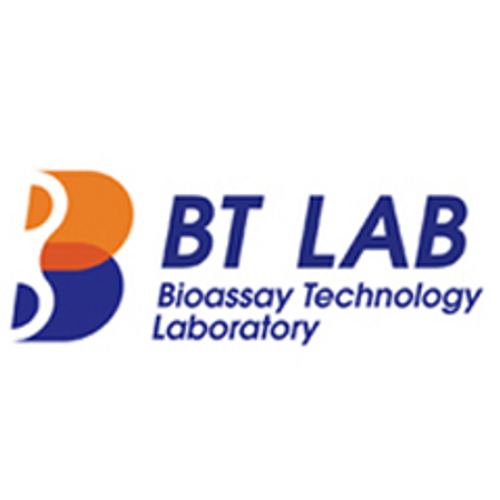Product Description
WIPI1 Antibody | 7041 | ProSci
Host: Rabbit
Reactivity: Human, Mouse, Rat
Homology: N/A
Immunogen: WIPI1 antibody was raised against a 17 amino acid synthetic peptide near the carboxy terminus of human WIPI1.
The immunogen is located within amino acids 350 - 400 of WIPI1.
Research Area: Autophagy
Tested Application: E, WB, IF
Application: WIPI1 antibody can be used for detection of Wipi1 by Western blot at 1 - 2 μg/mL. For immunofluorescence start at 20 μg/mL.
Antibody validated: Western Blot in rat samples and Immunofluorescence in human samples. All other applications and species not yet tested.
Specificiy: At least two isoforms of WIPI1 are known to exist; this antibody will detect both isoforms.
Positive Control 1: Cat. No. 1472 - Rat Colon Tissue Lysate
Positive Control 2: N/A
Positive Control 3: N/A
Positive Control 4: N/A
Positive Control 5: N/A
Positive Control 6: N/A
Molecular Weight: 49 kDa
Validation: N/A
Isoform: N/A
Purification: WIPI1 Antibody is affinity chromatography purified via peptide column.
Clonality: Polyclonal
Clone: N/A
Isotype: IgG
Conjugate: Unconjugated
Physical State: Liquid
Buffer: WIPI1 Antibody is supplied in PBS containing 0.02% sodium azide.
Concentration: 1 mg/mL
Storage Condition: WIPI1 antibody can be stored at 4˚C for three months and -20˚C, stable for up to one year. As with all antibodies care should be taken to avoid repeated freeze thaw cycles. Antibodies should not be exposed to prolonged high temperatures.
Alternate Name: WIPI1 Antibody: ATG18, ATG18A, WIPI49, WD repeat domain phosphoinositide-interacting protein 1, Atg18 protein homolog, WIPI-1
User Note: Optimal dilutions for each application to be determined by the researcher.
BACKGROUND: WIPI1 Antibody: WIPI1 (WD repeat domain, phosphoinositide interacting-1) , also known as WIPI1, ATG18 or WIPI49, is thought to play a role in autophagy and may regulate protein trafficking in certain recycling pathways. It contains three WD repeats and has a 7-bladed propeller structure with a conserved motif that facilitates its interaction with other proteins. WIPI1 localizes to cytoplasmic vesicles, endosomes, clathrin-coated vesicles and the trans-Golgi network. It is ubiquitously expressed with highest expression in heart, testis, placenta, pancreas and skeletal muscle. WIPI1 is upregulated in a variety of tumors, suggesting a role in carcinogenesis.
 Euro
Euro
 USD
USD
 British Pound
British Pound
 NULL
NULL










